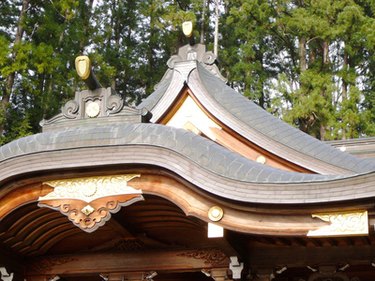
Buying someone from another culture a gift can be intimidating when you're unsure of what is appropriate or considered taboo. Giving a housewarming gift to a Japanese family is based on the same motivation as giving one to an American family: a thoughtful desire to make the recipient feel affirmed. Japanese culture has complex nuances about relationships and status, so do some research before you bestow a gift.
Sake
Video of the Day
Giving a fine bottle of sake (rice wine) is an appropriate gift. As with traditional wine, sake is available in various style from light to full-bodied. A good-quality domestic sake should cost between $10 and $20 for a 1.5 liter bottle, while a good-quality imported sake should cost a little bit more. It's best to choose a sake less than one year old if a date is imprinted. You can purchase sake at an Asian market or at a large wine store.
Video of the Day
Gadgets
Electronic gadgets are very popular in Japan. Depending on your budget, you could purchase an electronic reader, MP3 player, or Internet tablet. Photography is also a widespread hobby; to help the recipients capture memories of their new home, you could give them a digital camera, camcorder, or digital picture frame. If you have a smaller budget or you know the family already owns most gadgets, you could give them an e-book or iTunes gift card.
Taboos
When giving a gift to a Japenese recipient, you must consider the relationship between you and the recipient to avoid cultural taboos. Although it may seem like an innocent, thoughtful gesture, gift-giving can have parallels with bribery, according to Katherine Rupp, an anthropology lecturer at Yale University. Avoid giving a very expensive gift if the recipient is your boss, doctor, or superior. Inexpensive gifts are acceptable. Don't give gifts in sets of four, as the number four is associated with death in Japanese culture. The number two, however, is considered lucky.